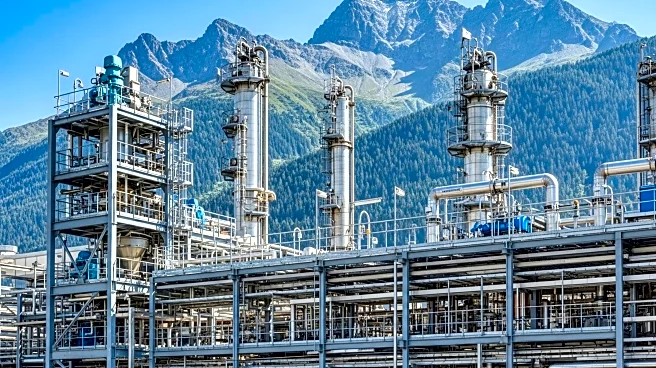What's Happening?
Switzerland is proposing to build a gold refinery in the United States or increase its processing capacity there as part of efforts to reduce U.S. trade tariffs imposed by President Trump. The tariffs, set at 39%, were introduced due to the U.S. trade deficit with Switzerland, largely driven by Swiss exports of chemicals, pharmaceuticals, and gold. The Swiss government and private sector are collaborating to address these tariffs, with plans to enhance U.S. gold refining capacity to balance trade flows. Discussions between Swiss and U.S. officials are ongoing, with Switzerland also considering increased procurement of U.S. military goods and liquefied natural gas.
Why It's Important?
The proposal to build a gold refinery in the U.S. represents a strategic move by Switzerland to mitigate trade tensions and tariffs that impact its economy. By increasing U.S. refining capacity, Switzerland aims to balance trade flows and potentially exempt its pharmaceutical sector from tariffs related to national security concerns. This initiative could strengthen economic ties between the two countries and influence future trade negotiations, while also impacting the global gold market and refining industry.
What's Next?
If Switzerland proceeds with building a refinery, it could lead to increased investment and job creation in the U.S. gold refining sector. The ongoing negotiations may result in reduced tariffs and improved trade relations between the U.S. and Switzerland. Additionally, Swiss pharmaceutical companies might expand their U.S. production capabilities to avoid tariffs, potentially reshaping the industry landscape and affecting global supply chains.
Beyond the Headlines
The proposal highlights the complexities of international trade relations and the impact of tariffs on global industries. It underscores the importance of strategic economic planning and collaboration between governments and private sectors to navigate trade challenges. The situation may prompt broader discussions on the role of tariffs in international trade and their implications for economic diplomacy.








